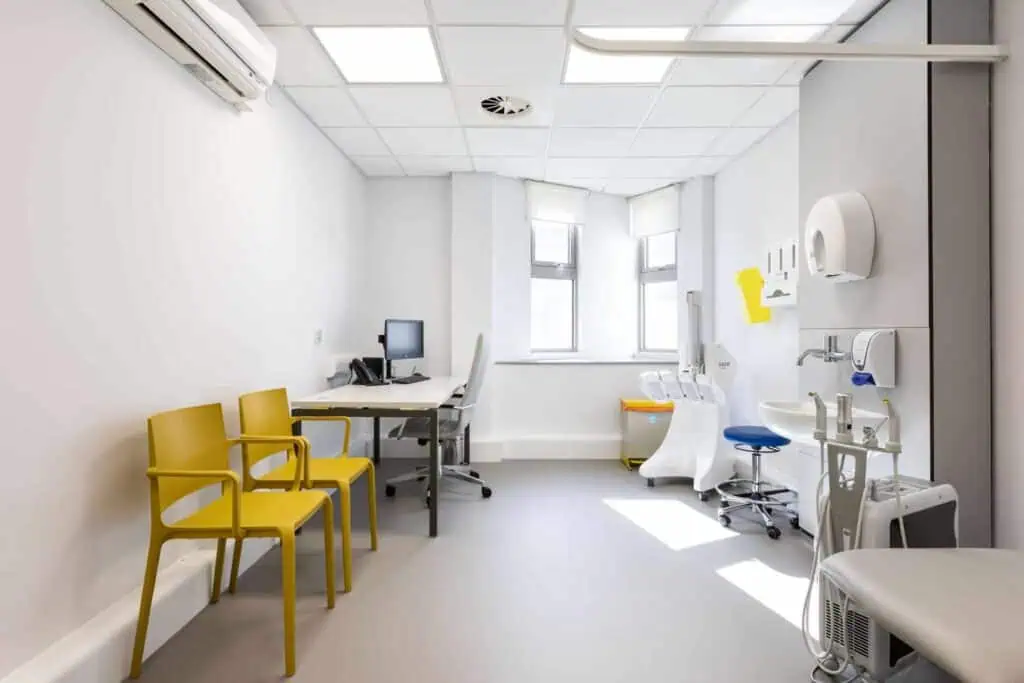Freckles and Solar Lentigos
Home » Conditions » Freckles and Solar Lentigos
Award winning dermatology service, with over 20 years on experience
Short waiting lists, on some occasions offering same week appointments
Safe environment, in Care Quality Commission approved facilities
Freckles & Solar Lentigo Treatments Include:
Everything you need to know.
The main difference between a freckle and a solar lentigo is that for a freckle, only the amount of pigment being produced by melanocytes is increased, rather than the actual number of cells. The word lentigo simply describes a patch of skin that contains a higher density of cells called melanocytes which produce a dark pigment called melanin. There are many different types of lentigo, but the commonest are caused by the sun – solar lentigos.
Alternative names: Liver spot, old age spot, senile freckle, sun spots (singular: lentigo)
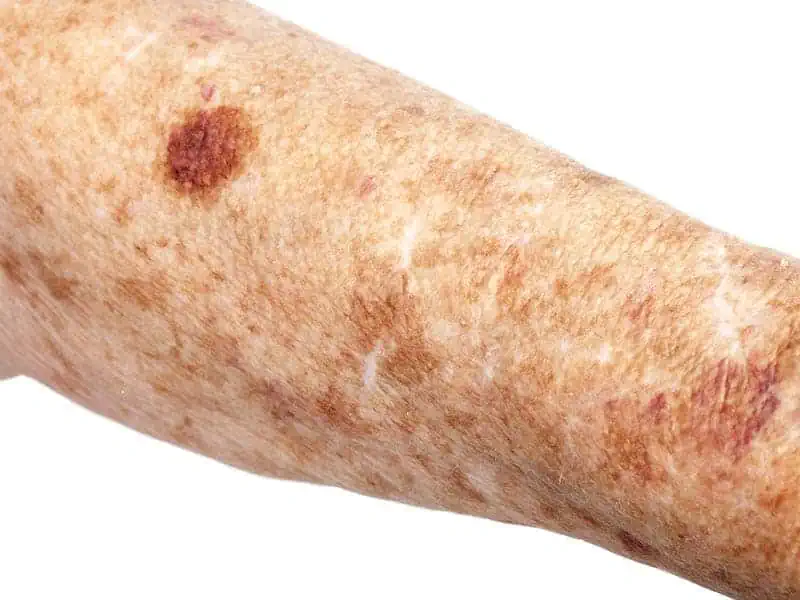
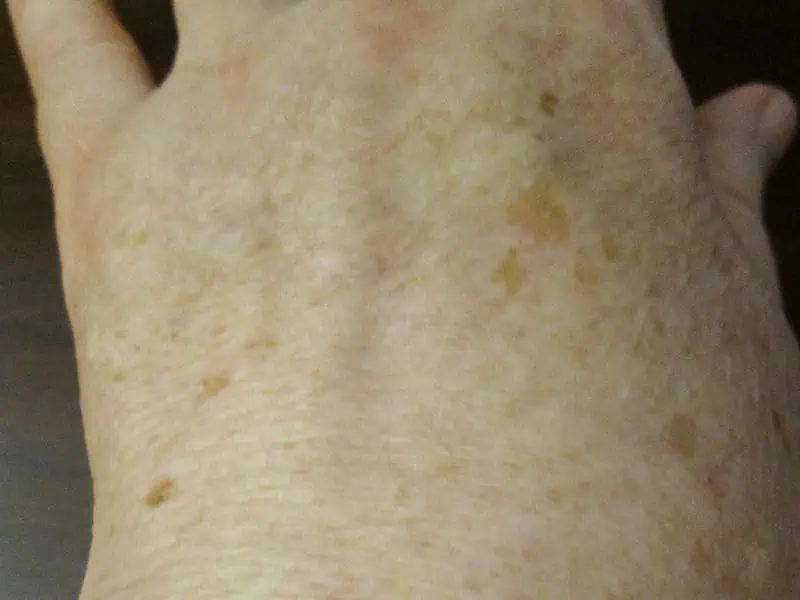
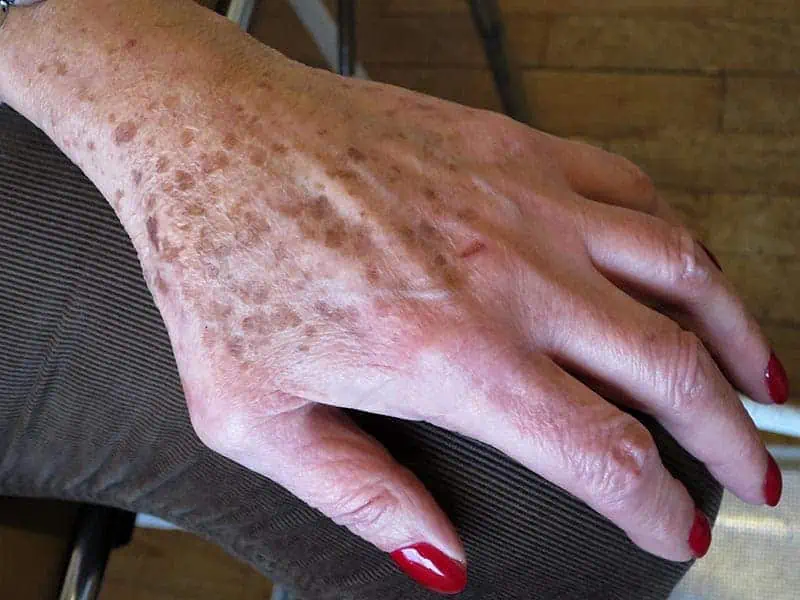
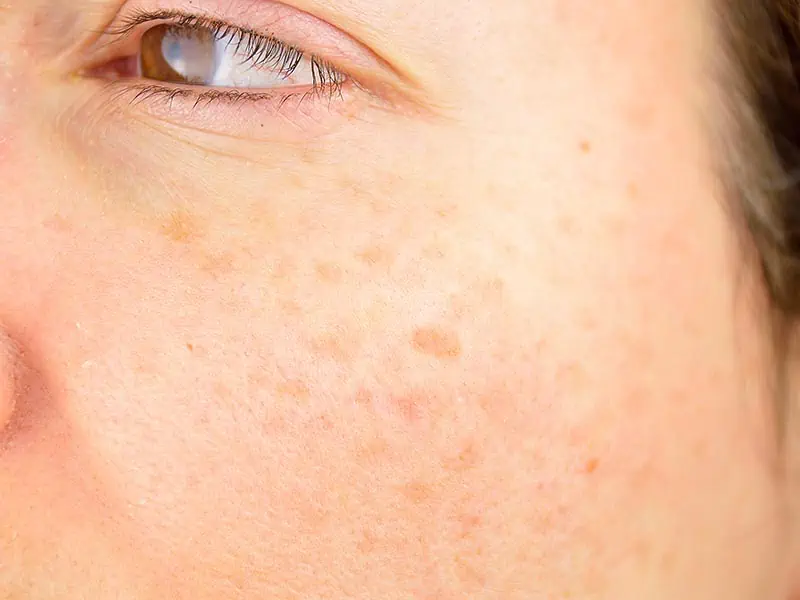
WHAT CAUSES FRECKLES AND SOLAR LENTIGOS?
These are non-cancerous brown spots which are thought to develop in response to sun-exposure, especially in those with fairer skin. They can appear anywhere but tend to form on the face, neck, shoulders and forearms (areas usually most exposed to sun). Unlike freckles they usually appear after the age of 30.
WHAT ARE THE SYMPTOMS OF FRECKLES AND SOLAR LENTIGOS?
Solar lentigos are flat spots which vary in colour from yellow-brown to dark brown-black, depending on skin tone. They are generally much larger than freckles being >5mm in width. The number and size of solar lentigos often increases with age, and, in comparison to freckles, they do not fade much during the winter months.
Freckles and solar lentigos are harmless, but it is important to recognise certain differences between these and early malignant melanoma (a type of skin cancer). If a brown spot with an irregular border or multiple colours has appeared recently, or if you have any doubts, please speak to us immediately.
Stratum Clinics offers a Skin Cancer Screening and Mole Checking service at all of our clinics. Speak to the team to find out more.
Adopting good sun-protection habits is the best way to prevent freckles and solar lentigines from developing or worsening. Cover up, especially between peak times from 11-4pm during hot days and wear sunscreen on exposed sites. Consider wearing clothing designed to provide sun protection and wear a broad-spectrum sunscreen with a strong SPF and apply as advised by the manufacturer.
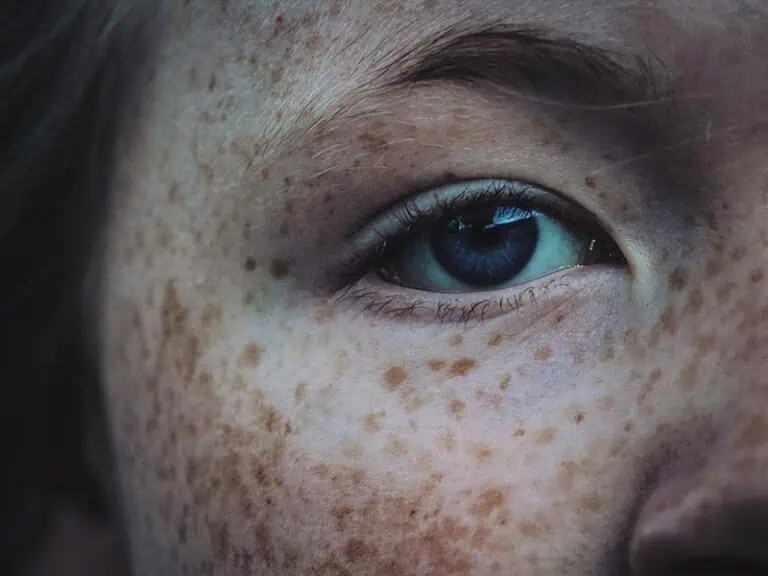
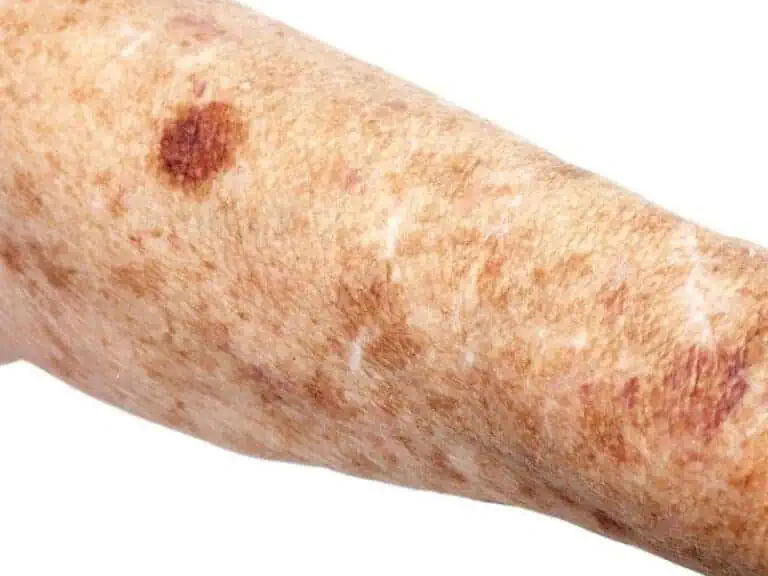
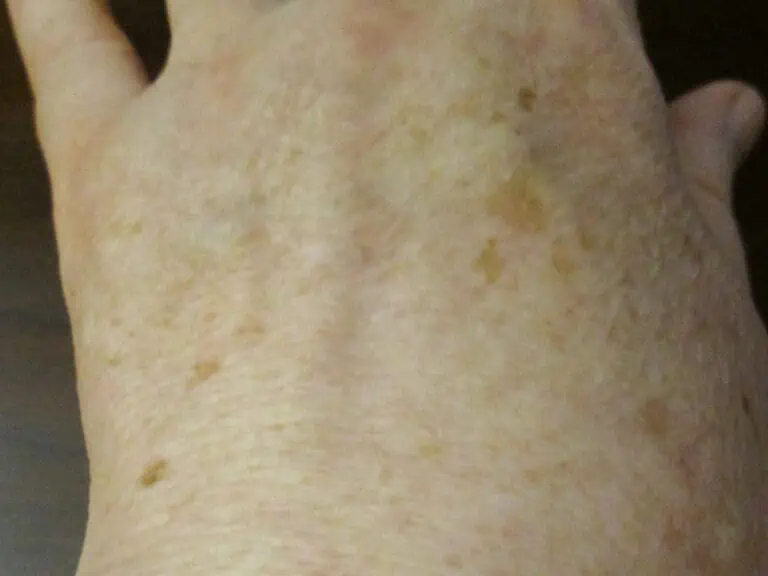
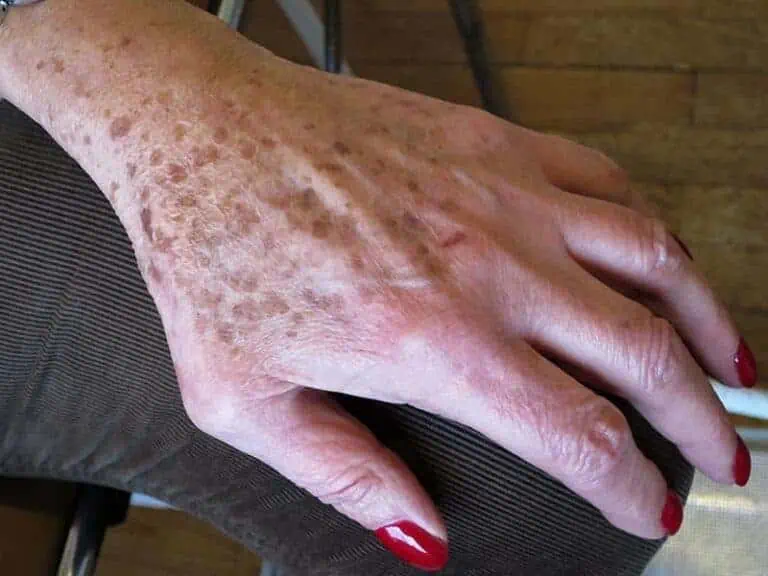
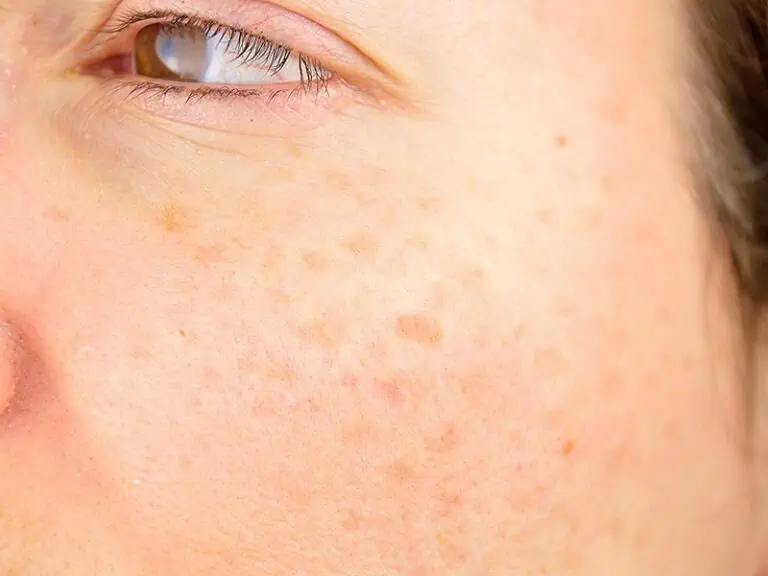
FRECKLES & solar lentigo treatment Options
For patients who already have a large number of freckles and solar lentigos, there are treatments available to reduce their appearance.
Common freckle and solar lentigo treatments include lasers and intense pulsed light (IPL). A laser is a high energy beam of light that can precisely transfer this energy into certain tissues within the skin. These beams of light are produced in one wavelength at a time and can vary in terms of their strength and the type of tissue that they can target. Intense Pulsed Light systems differ from lasers in that they can deliver hundreds of wavelengths (or colours) in each burst of light. Certain filters are used to filter out the unwanted wavelengths, so that they work in a similar way to lasers causing heat damage to the particular skin problem.
Chemical peels are most commonly used to improve the appearance of the skin on the face or on the back of the hands. They work by gently removing layers of skin by applying a chemical solution which causes the skin to peel off, making the way for new
The aesthetic outcome of these therapies varies from person-to-person and during your consultation the treatment options and their outcomes will be discussed with you.
FREQUENTLY ASKED QUESTIONS
ARE FRECKLES DANGEROUS?
Though freckles and solar lentigines may be mistaken for malignant melanoma, they do not themselves turn into cancer, and thus are benign. However, some people find them cosmetically unappealing, especially on the face.
WHAT CAUSES FRECKLES TO SUDDENLY APPEAR?
The exposure to UV-B radiation activates melanocytes to increase melanin production, which can cause freckles to become darker and more visible. Freckles are therefore more visible following exposure to sunlight.
CAN FRECKLES TURN INTO MOLES?
No, freckles can’t turn into moles. Freckles appear due to sun exposure or genetics, whereas moles appear after the skin cells develop into a cluster instead of spreading out on the skin.
WHAT AGE DO FRECKLES MOST COMMONLY APPEAR?
The average age that children develop freckles is between 2 and 4 years old.
ARE FRECKLES A SIGN OF SUN DAMAGE?
Freckles actually act like sun cream and are a natural way for the skin to block dangerous UV rays from penetrating the deeper layers of skin. They aren’t a sign of sun damage but actually protect areas of the skin that are particularly sensitive to UV light.
REQUEST A CALL BACK
Please fill in this form and one of our team will give you a call back to arrange a consultation with one of our expert dermatologists.
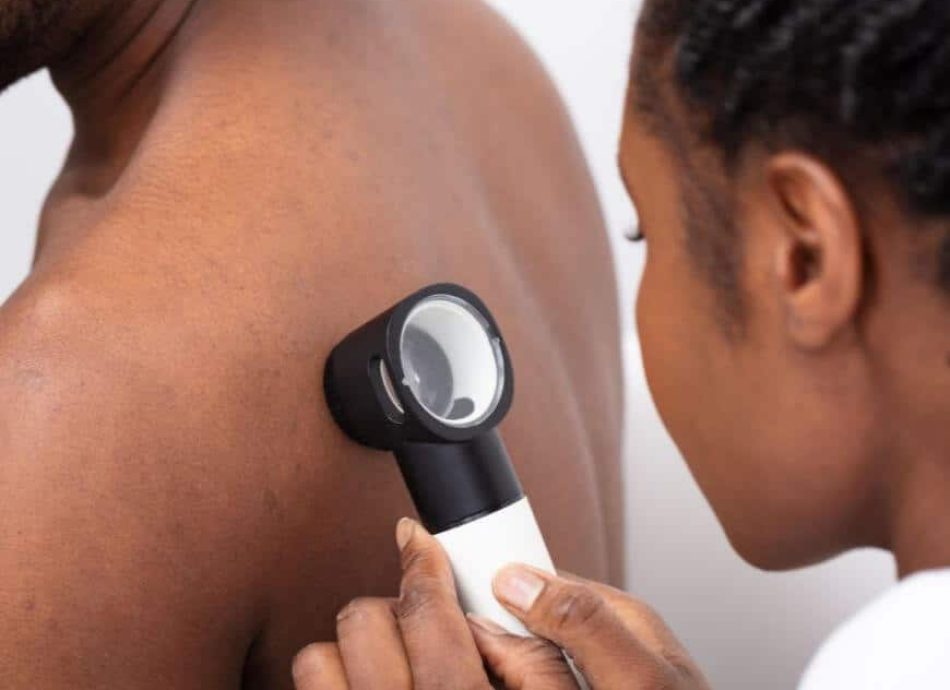
HEAR FROM OUR PATIENTS
WHY TREAT YOUR FRECKLES & SOLAR LENTIGOS At Stratum DERMATOLOGY CLINICS?
While freckles and solar lentigos are not dangerous, they can be treated to reduce their appearance for cosmetic reasons. We work with leading experts in the field of dermatology to ensure you have the best experience and treatment. Stratum Dermatology Clinics are regulated by the Care Quality Commission, are part of the British Association of Dermatologists and are top-rated by patients on Doctify so you can assure safe and effective solar lentigo treatment with us.
Latest INSIGHTS AND ADVICE

Guide to Fall Skin Conditions
Autumn, with all its stunning colours, also brings some challenges for our skin. As the air gets cooler and the leaves turn vibrant shades, it’s a reminder that we’re steadily approaching winter. Keeping your skin glowing and healthy during this transition from summer to the
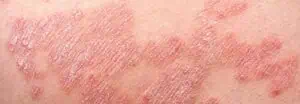
Eczema Awareness Month – Complete Guide on Eczema
October is Eczema Awareness Month. For individuals living with eczema, you will be all too familiar with the trials of handling this skin complaint. It’s our mission throughout October and beyond to educate, support and empower you by delivering invaluable insights on its origin, available

Understanding Varicose Veins: Symptoms, Treatments and Prevention
Varicose Disease Awareness Month focuses on raising awareness about varicose veins, a common but often ignored condition affecting millions globally. This September, we’re highlighting the importance of early detection, available treatments and lifestyle changes to effectively manage varicose veins. By increasing awareness, we aim to
